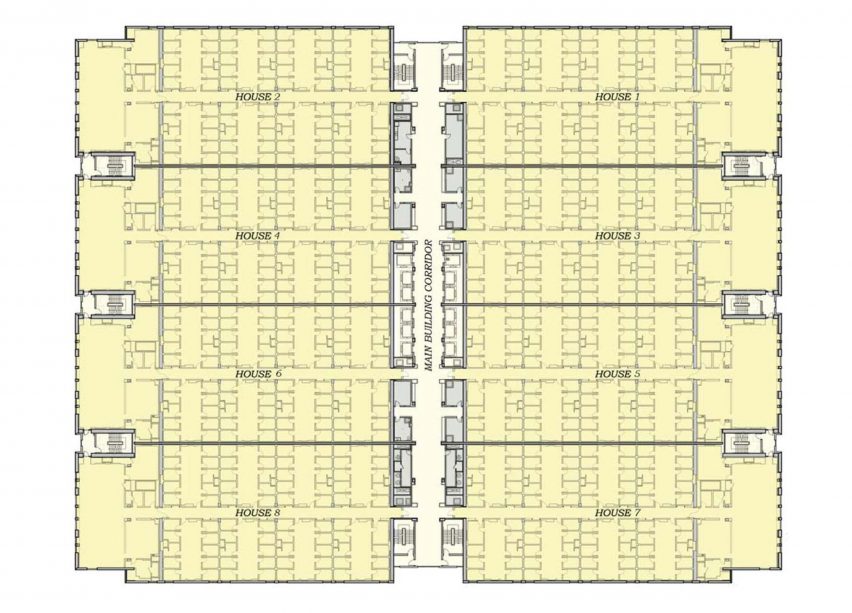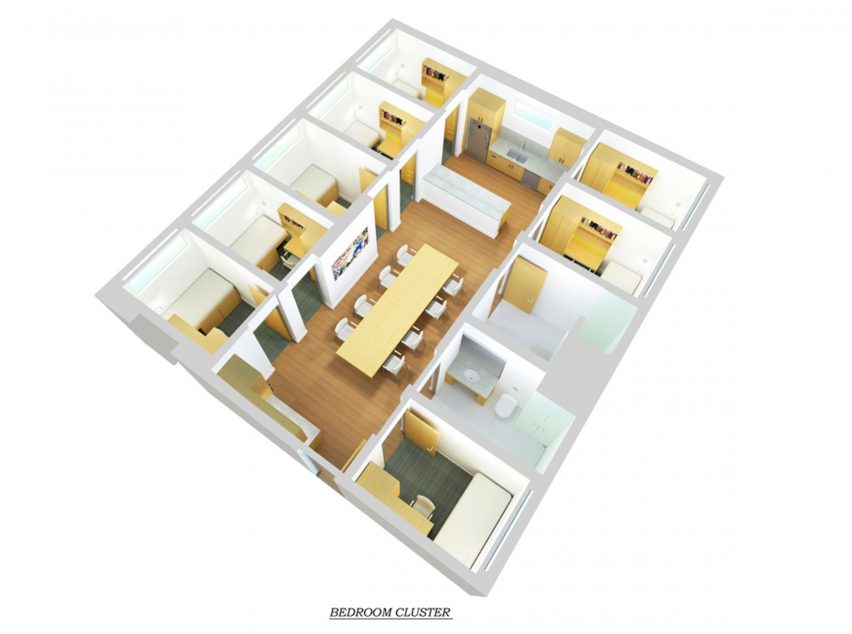
Petition launched to stop construction of controversial Munger Hall dormitory
More than 12,000 people have signed a petition against the construction of Munger Hall, a mostly windowless student dormitory for the University of California backed by billionaire investor Charles Munger.
The campaign, which is hosted on change.org, was launched by Tommy Young, a student at the university's Santa Barbara campus where the housing is set to be built.
Munger Hall hit the headlines in recent weeks due to its controversial design, which could see over 90 per cent of its student residents live in windowless rooms.
The proposal, which measures 1.68 million square feet (156,000 square metres) and could house up to 4,500 students, is also designed with only 14 entrances and exits.
Petition responds to proposal's "glaring problems"
Young's petition was filed to allow students at the University of California Santa Barbara (UCSB) and the wider community "to voice their opposition to this building". At the time of writing, it has 12,161 signatures.
"I am not an architecture major, but it does not take an architecture major to recognize the glaring problems with this structure, and the administration's refusal to recognize the criticism they have received from architects," Young states in his petition.
"UCSB has a housing crisis, and this must be addressed," the student continues. "However, warehousing students in one windowless superstructure designed by an amateur architect is not the solution."

The Munger Hall proposal comprises nine dense floors of residences, which would make it the largest dormitory building in the world if built.
Each of its nine floors will have eight "houses" containing eight separate "suites", organised around a communal kitchen and living area. This layout would see 94 per cent of students live in single-occupancy bedrooms with virtual windows that simulate sunlight.
Second petition filed by architectural historians
Since Young launched the petition, a second one with over 3,000 signatures has also been filed by the University of California Santa Barbara's (UCSB) Architectural Historians Group.
The group said the petition was "to signal [its] adamant opposition" to the project and to support architect Dennis McFadden, a longtime member of the University of California's Design Review Committee who recently stepped down from his position in protest of the building's design.
In his letter of resignation, McFadden said that the design made it "unsupportable from my perspective as an architect, a parent, and a human being".

McFadden added that there was also no possibility of making changes to the dormitory's design, as reported by the Santa Barbara Independent.
"The design was described as 100 per cent complete, approval was not requested, no vote was taken, and no further submittals are intended or required," he wrote.
Design references Disney Cruise ships
In an interview with the Architectural Record, billionaire Munger has explained that the idea for the windowless dorms was inspired by Disney Cruise ships.
"We had a window shortage," he said. "So we just copied what Disney Cruises did. The way Disney does it, the window is really a television set. Those work beautifully on the ships."
He added that the design is safe as it will be constructed with "sprinklered concrete" and have "enough exits to satisfy all of the codes".
Munger, who is the vice-chairman of Warren Buffett's Berkshire Hathaway conglomerate, has no formal architecture training. The detailed design of the housing is being carried out by VTBS Architects, which is the architect of record on the project.
In response to the backlash, VTBS Architects' managing principal Navy F Banvard told Dezeen that the concerns over the lack of windows were unfounded.
"All virtual windows will have a fully programmed circadian rhythm control system to substantially reflect the lighting levels and color temperature of natural daylight," he said.
In response to the controversial story, we rounded up ten buildings with glassless facades.
The main image of Munger Hall is courtesy of University of California Santa Barbara.